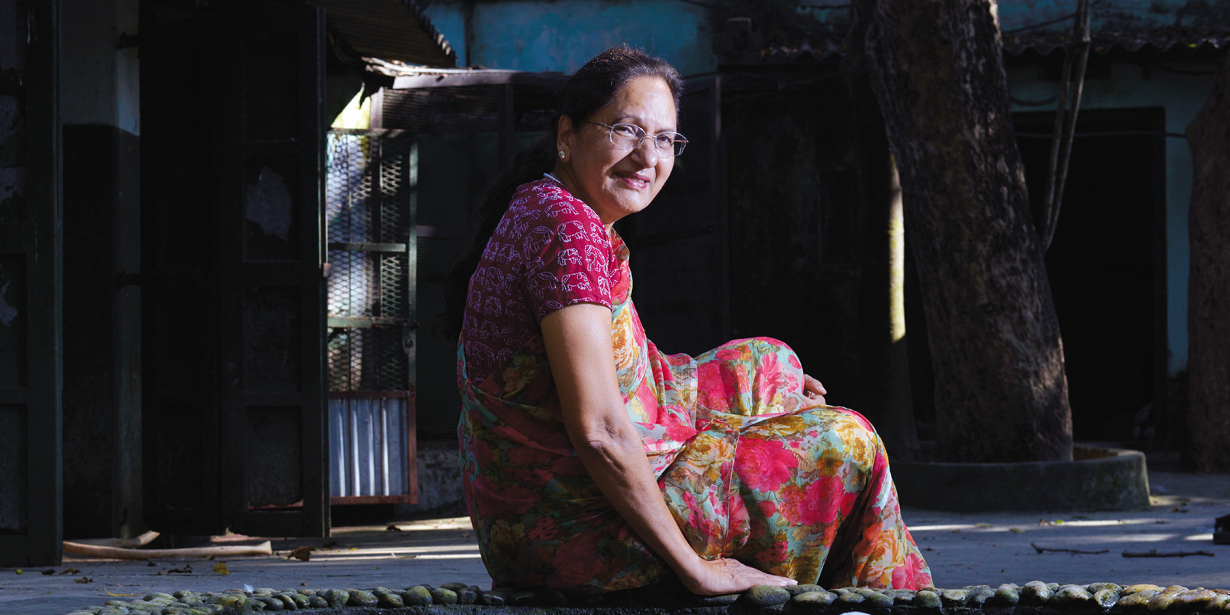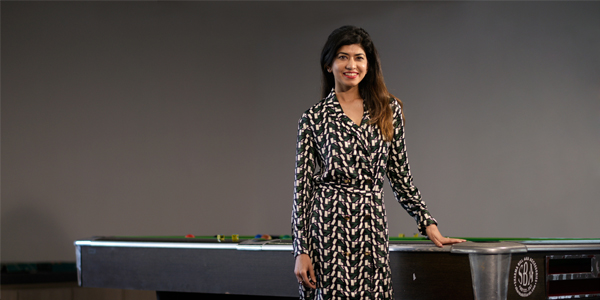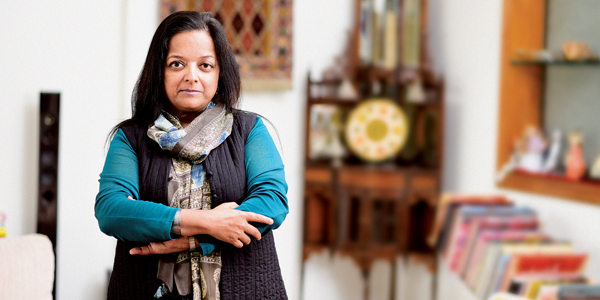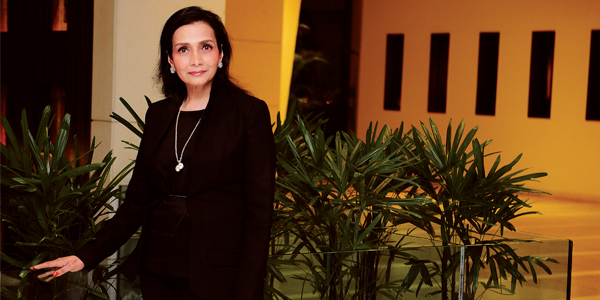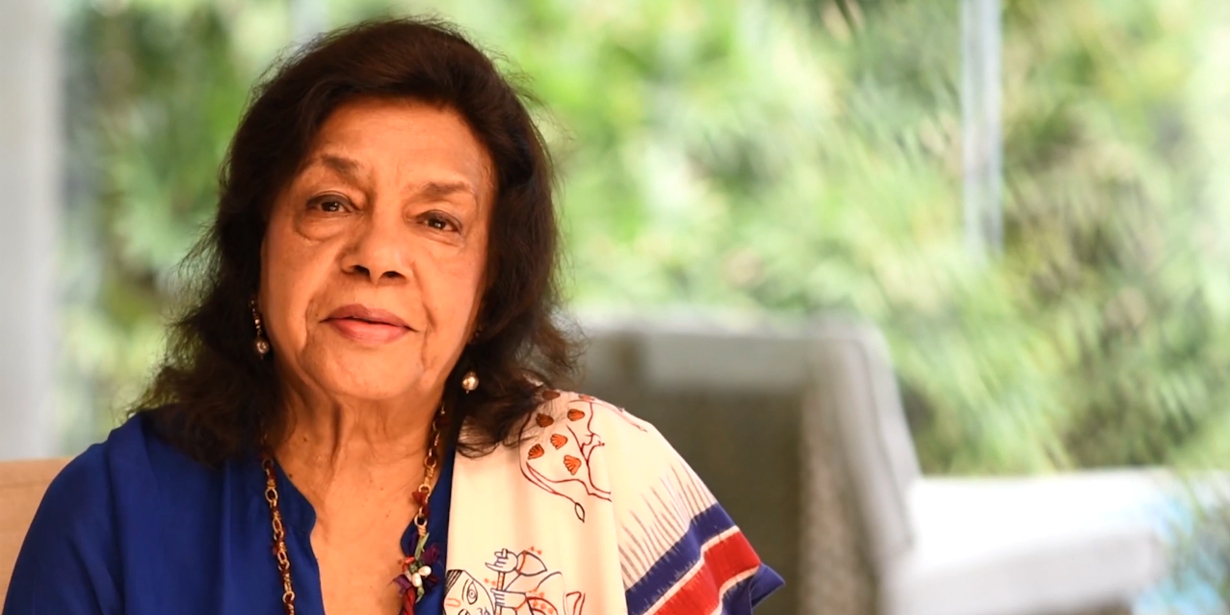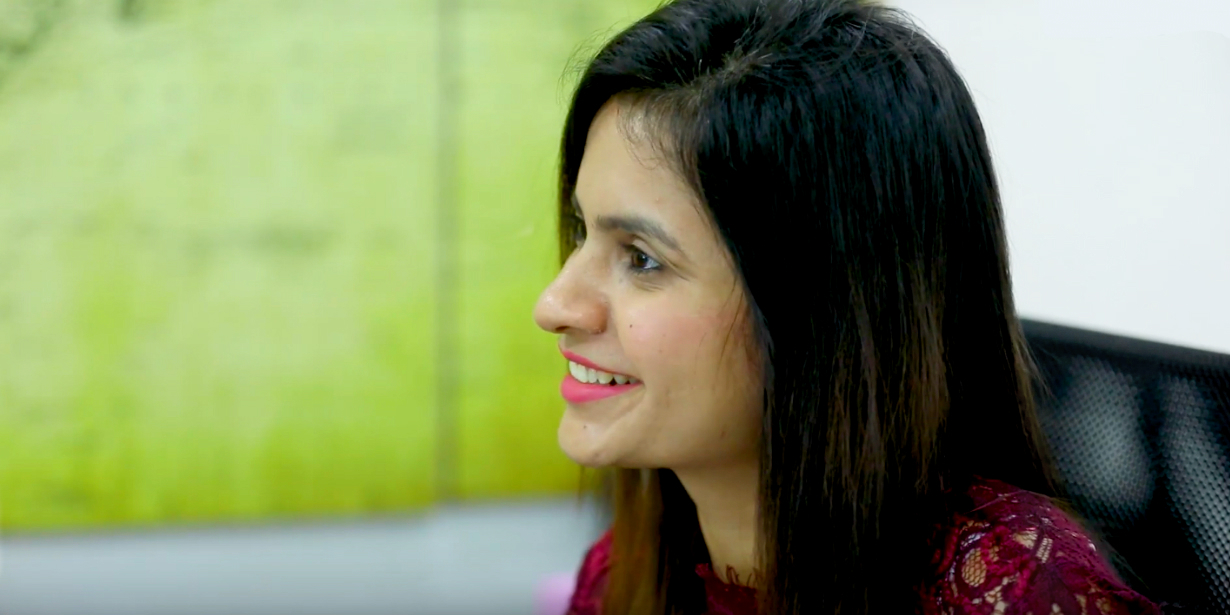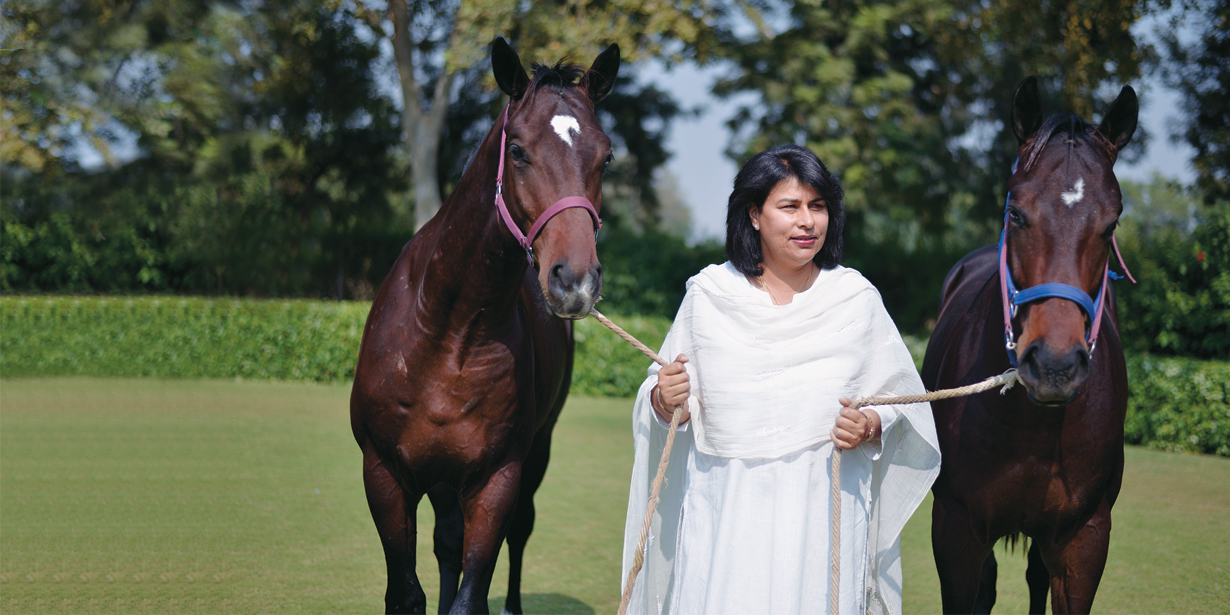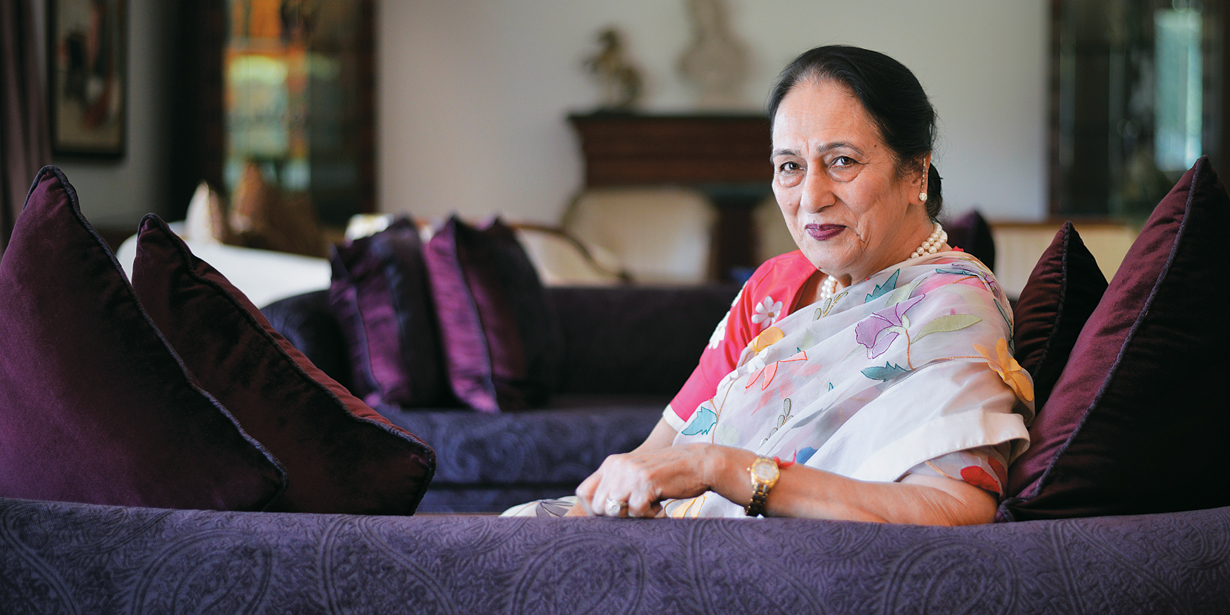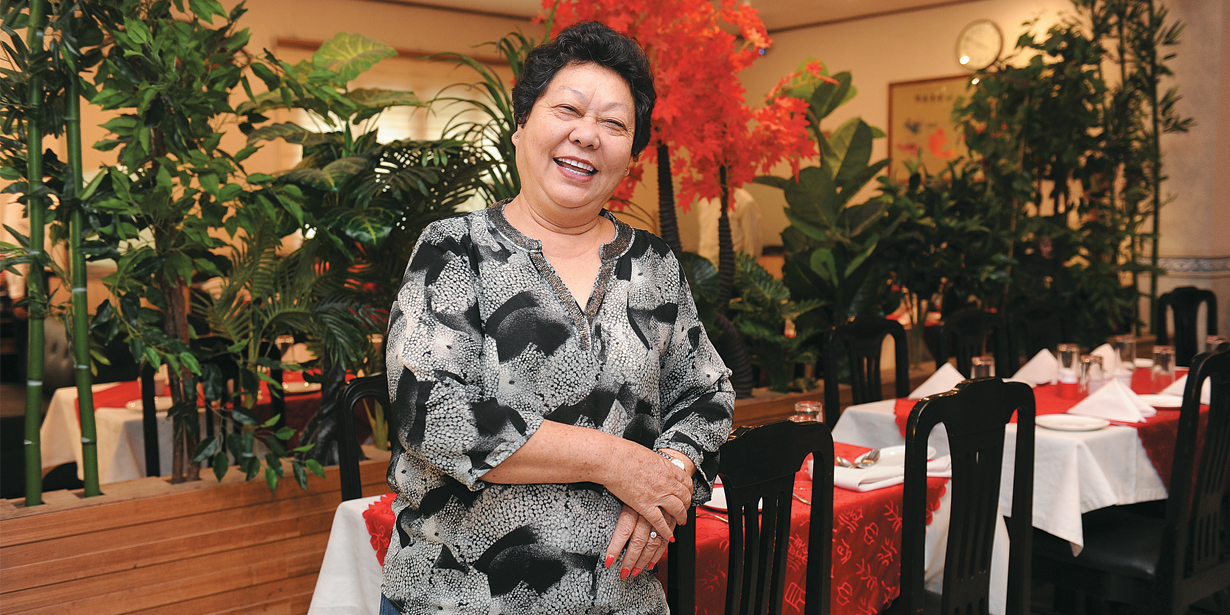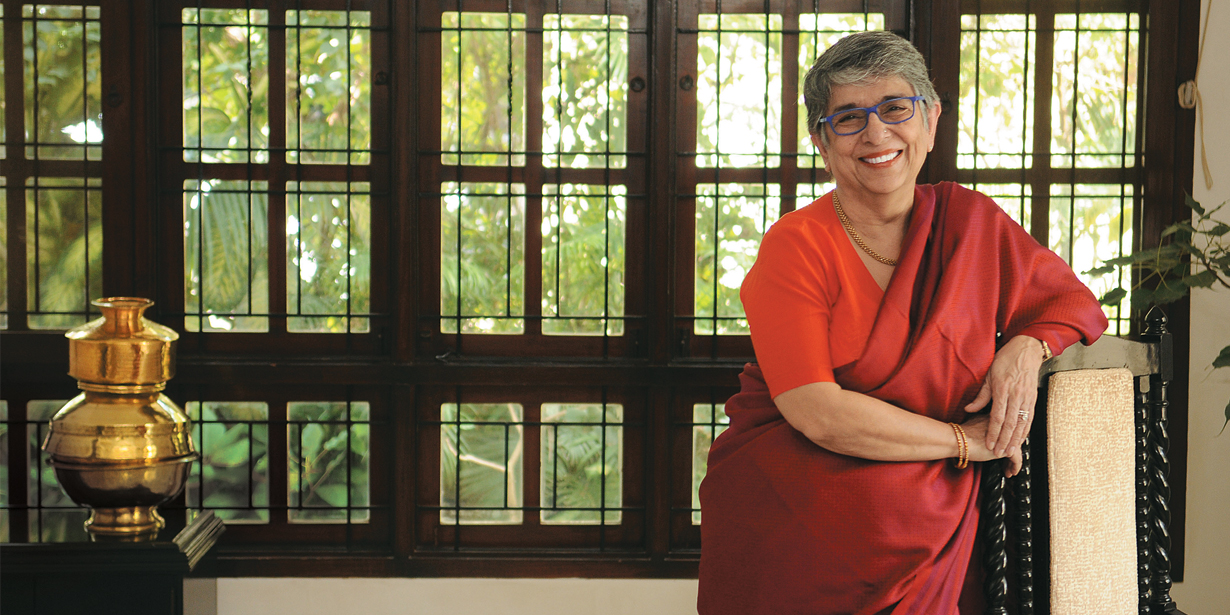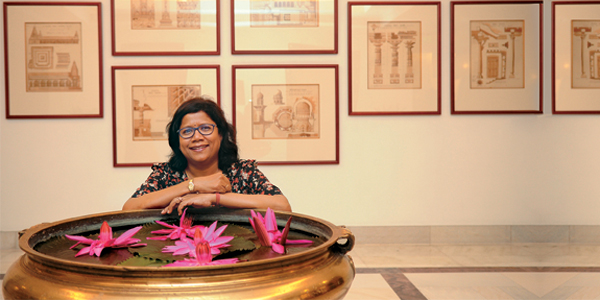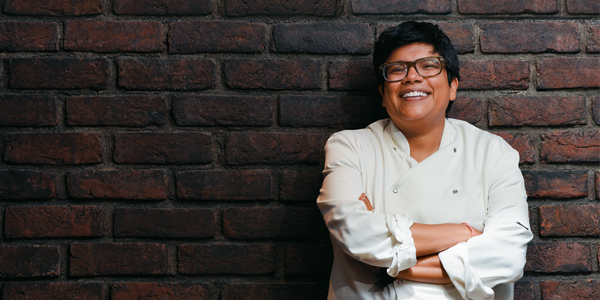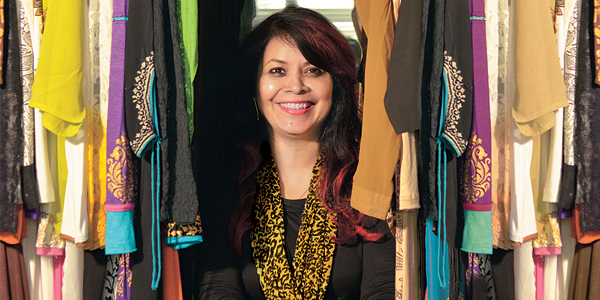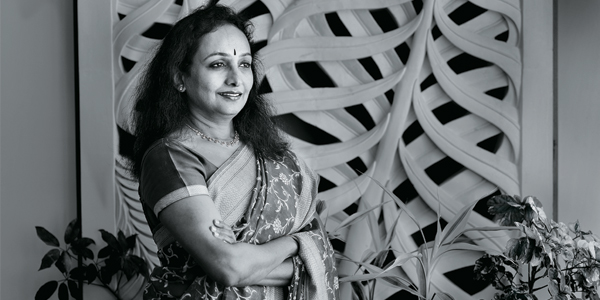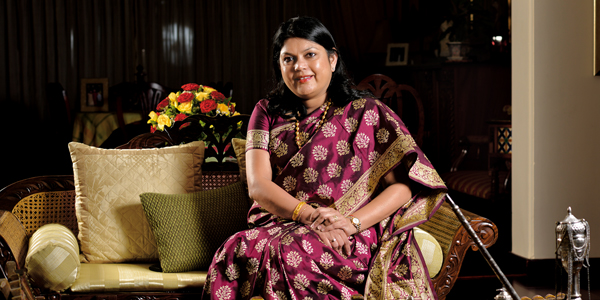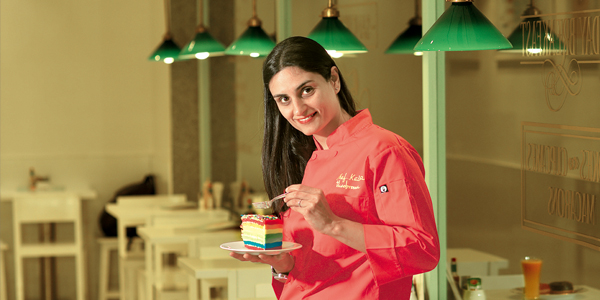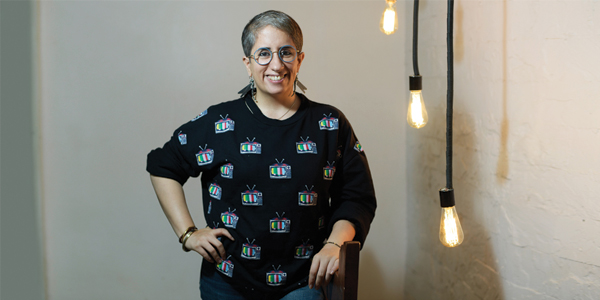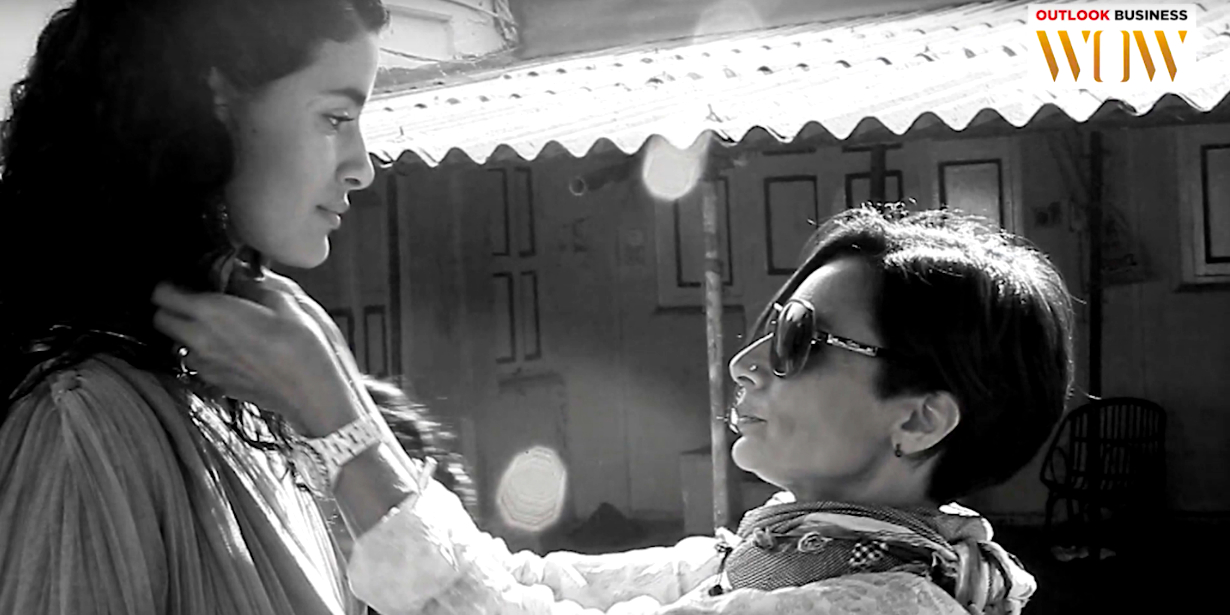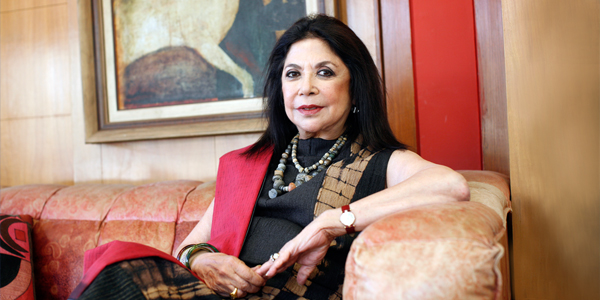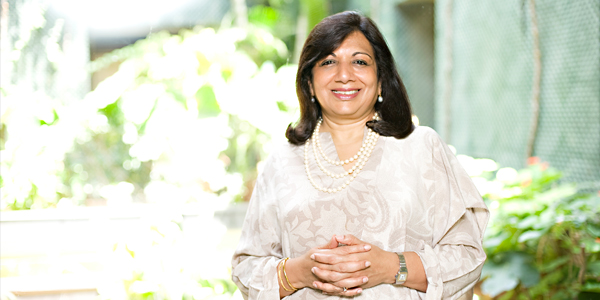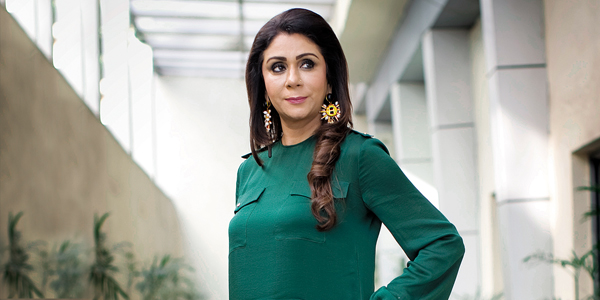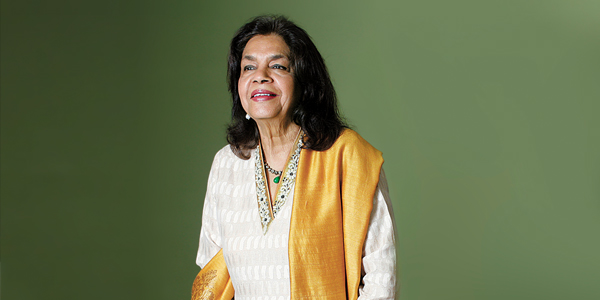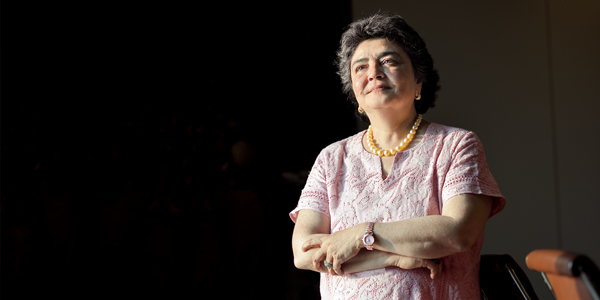Between fighting off patriarchy and learning the tricks of business at 57, Lata Bajoria discovered her true self
This jute baroness has a zoo at home, helps sex workers, and assumed the reins of her husband’s jute empire upon his sudden demise, at the grand age of 57.
Dressed in a traditional saree, Lata Bajoria slipped on her chappals and walked right through the gates of the jute mill — a place she owned but was still off limits. That was the day when she truly realised what emancipation meant. Having lived in her husband’s shadow for decades, Bajoria believes every day, since he passed away, has been a step towards finding her true self. Today, besides overseeing the family’s jute business under the flagship Hooghly Mills Company, she is also engaged in social pursuits.

The early days
Born in Mumbai, Bajoria describes her upbringing as liberal unlike traditional Marwari families. So clearly, when she got married into a conservative household at the age of 20, it was a change like no other. She moved to Kolkata right after. “When your husband is so well-known, you automatically have to be in his shadow. You couldn’t say, ‘I want to do this, I want to do that’. You couldn’t ask questions such as, ‘What’s going on?’ or ‘Where are you going?’ either,” she explains. Unlike her childhood in Mumbai where frequent visits to Shemaroo and Kamal Book House to buy comics summed up her life, living by the rules in Kolkata, meant stepping out with a woman everytime she needed to buy something.
Before his death in March 2008, Arun Bajoria had made headlines for his audacious takeover attempt in 2000 when he cornered 14% stake in Bombay Dyeing, sending the Wadias scurrying to SEBI and seeking help from Ratan Tata and Keshub Mahindra to fend off the jute baron. However, Bajoria later sold off the stake in the open market. Counted among the most cash-rich barons of Kolkata, Bajoria was president of the Indian Jute Mills Association from 2004 to 2007, and his business once constituted 25% of India’s jute production. Besides jute, his business empire also comprised of real estate.
But the sudden demise saw Bajoria, whose daughters were already married, having to assert her authority over what rightfully belonged to her. She was 57 when she first came face-to-face with the empire that her husband had built. “More than half my life was gone before I discovered myself,” she says.
Despite living right opposite the jute mill that her husband owned in Garden Reach, Bajoria was never allowed to visit the factory or its office. “I had heard so much about jute; I always wondered what a factory of the ‘golden fibre’ must be like,” she says. That is until she demanded to visit the jute mill after her husband’s death. But her request met with refusals by senior staff at the mill. Yet, Bajoria wasn’t one to give up. A week later, there she was at the factory. “When the workers saw me, they were not only surprised but I also saw respect in their eyes. The only thing they said to me was, ‘You’re the maalik now. Please do visit us more often,’” recalls Bajoria.
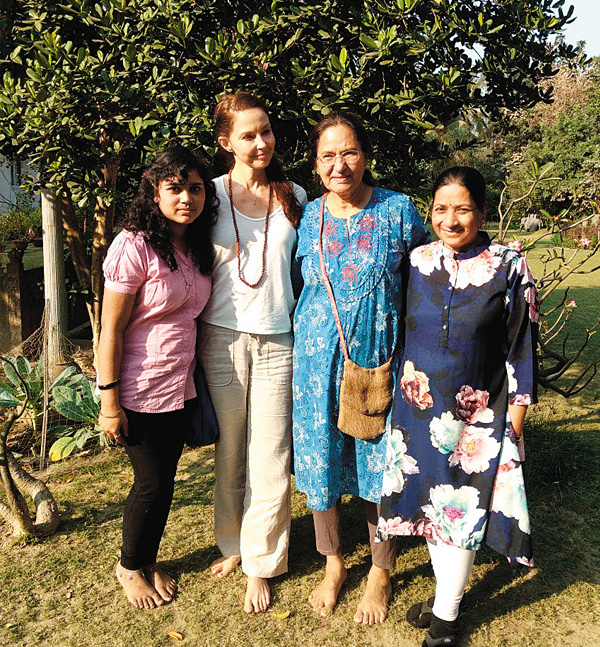
Bajoria and her daughters may have been the legitimate heiresses to her husband’s properties, but their rights were challenged by her husband’s cousin. The protracted legal battle only strengthened her resolve in the years to come.
Earning the respect of those at the office wasn’t easy either. Stepping into the office, she describes the environment as a “patriarchal” one that refused to accept her as the new business proprietress, so much so that she was repeatedly denied access to the meetings with lawyers because she was a woman. But a little courage was all Bajoria needed to stand her ground, and finally, attend a meeting.
If anything, Bajoria’s story is that of her determination to learn, to do things right and keep going. Having been thrust into the business with no experience whatsoever, she recounts the initial days, “I did not know anything — about jute or finance or legal.”
So how did she turn things around for herself? Reading pink papers. It wasn’t the ideal solution, but a start nonetheless. Sure, there are times even now, when she finds herself struggling with issues related to finance and the like, but she has found her foothold soon after her rookie phase. In fact, such was her curiosity to learn more about the jute business that she would willingly strike up conversations with others in the business. “Earlier, when I attended parties with my husband, I would speak to the wives of other businessmen about home, children and such. But after I took over, I would talk to the men instead, and ask their opinions about running a business,” she explains. Considering the conservative nature of her family, her actions were not short of being bold.
Better late than never
The turn of events was a push for Bajoria to finally come out of the cocoon she had been living in since her marriage. “My husband bought a lot of properties that I was not aware of earlier,” she says. So to start with, she began visiting the jute mill more. Bajoria had her own vision on how to take the legacy forward, but there were obstacles that had to be faced, especially when it came to how decisions ought to be taken – for instance, when the director of Kolkata’s Max Mueller Bhavan approached her to organise a laser show at their warehouse. The manager refused, only for Bajoria to realise that she was the one in charge. “I asked myself, ‘Why am I begging the manager [for permission to do the show]?’ They were accustomed to having everything done at their beck and call. But something snapped inside and I realised, why should I be at their mercy?” That was the beginning to what can only be described as Bajoria calling her own shots. Today, the jute mill is a melange of activities — right from visits by the British High Commissioner to India to filmmakers and photographers such as Barbara Davidson.
For Bajoria, this marked not only her personal transformation but also one that brings the “jute story” to the forefront. Inspired, motivated and energised to do more, she sums up, “I look at learning each day as a new adventure.” Bajoria doesn’t shy away from talking about “widowhood”. Instead, she feels it gave her the much-needed courage to break free of societal norms. As far as social gatherings go, she recalls the time she chose to stay away from a wedding — unlike the popular perception that demanded the presence of the city’s influentials. She adds, “It felt like getting rid of another shackle on my feet.”
Self–realisation
If Bajoria is not at the mill or working away at the office, she can be easily spotted at her organic garden at home or working hand-in-hand with ApneAap, a Kolkata-based anti-sex-trafficking NGO. Over the years, both these pursuits have come to define her as a person as much as the jute business, if perhaps not more.
Her organic garden, the roots of which date back to her childhood, is a different story altogether. She recalls, “Whenever my father went for a walk to Kamala Nehru Park, he would always return with a flower or seed.” That ritual sowed the love for botany in her heart — a passion she credits to her father. So, when she moved to Kolkata, she took it upon herself to remodel the British garden in their home one step at a time — a pool, some vegetables and so on. But noticing the effects of fertilisers on plants made her instinctively convert the garden to a wholly organic one, about 10 years ago. Around the same time, she also started rescuing animals and harbouring them in a portion of her garden, which she like to call the “zoo”. And what doesn’t it shelter: cows, goats, turtles, snakes, peacocks and owls. Such is the reputation that people hoping to give up their pets are sent straight to her. Her garden and zoo aren’t open for public, but she never denies a request for a visit. “Organic farming was always on the back of my mind,” says Bajoria.
Her concern for the environment is also evident in the way she leads the jute business. She steadily encourages others to use jute as a substitute to paper and plastic bags. “My ultimate vision is to help jute make a comeback,” she says. And her words have spread across the country. She recounts the time someone in Mumbai ordered her jute bags to be distributed in her school or how Hotel Taj Bengal placed an order for 2,000 jute bags to be distributed among its guests. She calls each of these a small step towards making the most of the declining industry that jute is today.
For Bajoria, each day is a lesson in disguise — learning from life instead of succumbing to it. “At my age… I’m doing whatever I can do. I can’t be that radical. But whatever I can do, I’m pushing it, 100%,” she says as she strolls in her garden. While this encounter was rife with life lessons, the most significant one from Lata Bajoria’s tale, definitely, is: “It’s never too late.”
